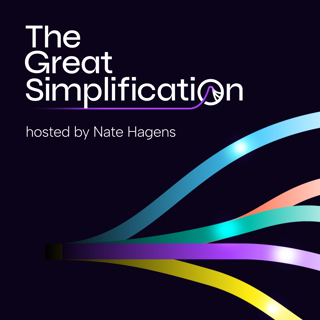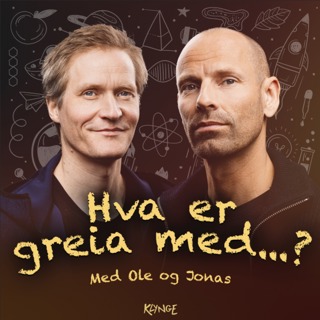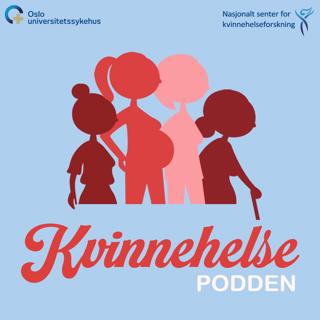
Silicon Dreams and Carbon Nightmares: The Wide Boundary Impacts of AI with Daniel Schmachtenberger
(Conversation recorded on June 27th, 2024) Show Summary: Artificial intelligence has been advancing at a break-neck pace. Accompanying this is an almost frenzied optimism that AI will fix our most pressing global problems, particularly when it comes to the hype surrounding climate solutions. In this episode, Daniel Schmachtenberger joins Nate to take a wide-boundary look at the true environmental risks embedded within the current promises of artificial intelligence. He demonstrates that the current trajectory of AI's impact is headed towards ecological destruction, rather than restoration… an important narrative currently missing from the discourse surrounding AI at large. What are the environmental implications of a tool with unbound computational capabilities aimed towards goals of relentless growth and extraction? How could artificial intelligence play into the themes of power and greed, intensifying inequalities and accelerating the fragmentation of society? What role could AI play under a different set of values and expectations for the future that are in service to the betterment of life? We encourage you to explore the resources and research from The Civilization Research Institute on artificial intelligence compiled in this document: https://static1.squarespace.com/static/61d5bc2bb737636144dc55d0/t/66958505d89b99287c4ecab3/1721074950447/AI%2C+Climate+and+the+Environment-07-12.pdf About Daniel Schmactenberger: Daniel Schmachtenberger is a founding member of The Consilience Project, aimed at improving public sensemaking and dialogue. The throughline of his interests has to do with ways of improving the health and development of individuals and society, with a virtuous relationship between the two as a goal. Towards these ends, he's had a particular interest in catastrophic and existential risk, with focuses on civilization collapse and institutional decay. His work also includes an analysis of progress narratives, collective action problems, and social organization theories. These themes are all connected through close study of the relevant domains in philosophy and science. Show Notes and More Watch this video episode on Youtube Read the Development in Progress paper To support ISEOF visit: https://www.thegreatsimplification.com/support
17 Jul 20241h 47min

And Then What?: Using Wide-Boundary Lenses | Frankly 65
(Recorded July 8 2024) There are many so-called 'solutions' out there that, upon first glance, seem like great ideas - yet when we look beyond the narrow scope of the immediate benefits, we discover a slew of unintended (and often counterproductive) consequences. Today's Frankly offers a series of examples of modern issues using a "wide-boundary" lens - and in the process demonstrates the importance of asking "...and then what?" when thinking about our responses to future events and constraints. How would incorporating wider boundary lenses into our lives change our plans and expectations for the future? What are we missing when we go all-in on plans to expand renewables, electric vehicles, and AI? Could a growing number of ecologically literate people guide us towards more pro-social policies, institutions, and infrastructure? Show Notes Watch on YouTube
12 Jul 202423min

Eat, Poop, Die: Animals as the Arteries of the Biosphere with Joe Roman
(Conversation recorded on June 14th, 2024) Show Summary: If plants are considered the lungs of the Earth, cycling CO2 into oxygen for animals to breathe, then animals act as the heart and arteries, spreading nutrients across the Earth to where it's needed most. This is the metaphor that today's guest, conservation biologist Joe Roman, uses when describing his work studying how animals such as whales, otters, salmon, and midges provide vital ecosystem services, and how destruction of their populations – caused by modern industrial systems – affects the livability of the entire planet. How has human activity drastically altered the balance and mass of species, and subsequently their ability to spread nutrients across the biosphere? What consequences must we face when biodiversity is diminished and nutrients are no longer dispersed as equally, leaving ecosystems with either extreme concentrations or scarcity of essential minerals, such as nitrogen and phosphorus? If we could "re-wild" diminishing species into their native habitats and aim for zero human-caused extinctions, how would this support a more resilient Earth for future generations of humans and animals alike? About Joe Roman: Joe Roman is a conservation biologist, marine ecologist, and "editor 'n' chef" of eattheinvaders.org. Winner of the Rachel Carson Environment Book Award for Listed: Dispatches from America's Endangered Species Act, Roman has written for The New York Times, Science, Slate, and other publications. Coverage of his research has appeared in the New Yorker, Washington Post, NPR, BBC, and many other outlets. He is a fellow and writer in residence at the Gund Institute for Environment at the University of Vermont. His latest book is Eat, Poop, Die: How Animals Make Our World. Show Notes and More Watch this video episode on Youtube
10 Jul 20241h 33min

Living Your Questions: A Pathway Through the Unanswerable with Krista Tippett
(Conversation recorded on May 16th, 2024) Show Summary: At the intersection between science and spirituality lies some of the most profound questions we can ask ourselves about the future - the answers to which could mean the difference between humanity's mere survival or a flourishing. Today's episode with Peabody-award winning broadcaster Krista Tippett is an exploration into what it means to be human in our modern world and engage as individuals in the inner work required to create outward transformation. What does it mean to ask questions that include the layer of a "Deep How", and how can we learn to hold, love, and live into the questions themselves when their answers may not exist yet? How could 'moral imagination', intentional conversation, and slowing down the pace of change lead to a longer lasting, sustainable evolution in human society? What would it take for us to finally grow up as a species and step up to face some of the most existential challenges in the history of our existence? About Krista Tippett: Krista Tippett is a Peabody-award winning broadcaster, National Humanities Medalist, and New York Times bestselling author. She created and hosts On Being, which has won the highest honors in broadcast, Internet and podcasting. Her newsletter, The Pause, and On Being Project are evolving to meet the callings of the post-2020 world — and to accompany the generative people and possibilities within this tender, tumultuous time to be alive. Her most recent book is Becoming Wise: An Inquiry into the Mystery and Art of Living. Show Notes and More Watch this video episode on Youtube
3 Jul 20241h 33min

The 20 Control Knobs for a Post-Growth Future | Frankly 64
In this week's Frankly, Nate shares twenty different things to expect in the future, some which will be extremely difficult to influence but others which are in our control to change. From the forecast of an increasingly hotter planet due to the Superorganism's insatiable appetite for fossil-carbon energy to a world of growing conflict and inequality, our tendencies are to despair and feel a loss of control. Will moving from a world of consumption and power defined by money and social status and away from apathy and isolation be possible? What if we purposefully turn the 'control knobs' in our own lives to shift how we approach a post-growth future by embracing reality - instead of unrealistic tech solutions - redirecting our focus towards deeper interconnection with community and local systems? Which control knobs might we turn to fill our hearts and lives with goodness, awe and wonder? Show Notes and More Watch on YouTube
28 Jun 202425min

The Flip, the Formation, and the Fun: A Metamodern Framework for Human Futures with Jonathan Rowson
(Conversation recorded on April 24th, 2024) Show Summary: Engaging with the human predicament requires new ways of understanding the world - novel perspectives that are rooted in a more holistic and interdependent mindset than those dominant in the industrialized society of the past few centuries. Today's conversation with philosopher and social scientist Jonathan Rowson dives into the emerging ways of being that could serve us as we move toward a post-growth world, including what he has found particularly helpful in his decades of work studying the metacrisis. In a world of (often siloed) hyper-specific experts, how would valuing the role of the "expert generalist" both change the face of academia and help us understand the world from a more holistic systems perspective? How does metamodernism merge the best of modernism and postmodernism to create a more comprehensive and constructive view of reality? How do we find and embrace our calling in the context of the metacrisis in order to take purposeful action forward? About Jonathan Rowson: Jonathan Rowson is the Co-Founder and Chief Executive of Perspectiva, a publishing house and praxis collective based primarily in London. Perspectiva describes itself as an urgent one-hundred-year project to improve the relationship between systems, souls, and society in theory and practice. Jonathan is a philosopher and social scientist by academic training and has degrees from Oxford, Harvard and Bristol Universities. He has written extensively on the idea of metacrisis as our multifaceted delusion, and he is increasingly focused on experiments in community and spiritual praxis to help shift socio-economic immunity to change. He is an Open Society Fellow and a Fellow at The Centre for the Understanding of Sustainable Prosperity at the University of Surrey. In his prior role as Director of the Social Brain Centre at the Royal Society of Arts he authored influential research reports including A New Agenda on Climate Change, Money Talks, and Spiritualise. He is also a Chess Grandmaster and three-time British Champion (2004–6) and views the game as a continuing source of insight and inspiration. His book, The Moves that Matter – A Grandmaster on the Game of Life was published by Bloomsbury in 2019. For Show Notes and More Watch this video episode on Youtube
26 Jun 20241h 36min

Sound Thinking: Using Music, Resonance, and Harmonics for Human Wellbeing with Alexandre Tannous
(Conversation recorded on May 1st, 2024) Show Summary: Music has been an integral part of the human experience for thousands of years, and continues to embody a unique aspect of culture across the world today - yet most people hold only a preliminary understanding of the full range of benefits that sound, resonance, and harmonics can provide. Today, Nate is joined by ethnomusicologist Alexandre Tannous for a deep dive on the evolution of the human relationship with sound and how music could be used as a tool to facilitate personal resilience and healing. How can resonance quiet our reptilian fight-or-flight system and positively impact personal and group consciousness? When grounded in ceremony, how does music enhance spirituality and well-being for communities? What could a world look like in which every human has the access and energy to focus on healing themselves through the powerful tools of sound and meditation? About Alexandre Tannous: Alexandre Tannous is an ethnomusicologist, sound therapist and sound researcher who holds four degrees in music, and years of experience performing, composing, conducting, teaching and lecturing on music. He has been investigating the therapeutic and esoteric properties of sound from three different perspectives - Western scientific, Eastern philosophical, and shamanic societal beliefs - to gain a deeper understanding of how, and to what extent, sound has been used to affect human consciousness. The material he transmits about sound is based on multidisciplinary research conducted over 24 years. Inspired by his findings, he designed a protocol of an integrated experience he calls "Sound Meditation", raising an awareness to how a specifically designed sound can have the ability to help us to disconnect from habitual patterns while judiciously listening to the overtone-rich instruments he plays. He uses a method that empowers the participants to engage actively with tools that enhance their experience. Show Notes and More Watch this video episode on Youtube
19 Jun 20242h 40min

Material World: The Key Resources Underpinning Modern Economies with Ed Conway
(Conversation recorded on May 7th, 2024) Show Summary: In contrast to 'The Great Simplification', some might call the events of the last few hundred years a 'Great Complexification' in terms of relationships, governance, supply chains, and many other human activities. Today's conversation with economics journalist Ed Conway focuses on the six essential resources that underpin our modern economies – sand, salt, iron, copper, oil, and lithium - and dives into the (often unseen) environmental and human costs of extracting them, as well as the surprisingly fragile global supply chains they fuel. In order to understand what possibilities – and dangers – may await us in the future, we need to understand the realities and constraints of the present, as well as the fail points of the past. What does it take to mine, refine, and transform the materials that are foundational to the world around us - which many of us now take for granted? How can we ensure the stability of global supply chains, and could we predict potential disruptions and chokepoints before they arise? If we understood the intricate web of complexity, energy, and resources that go into everything we consume, would it change our expectations for how much we need in order to live a good and fulfilling life? About Ed Conway: Ed Conway is a writer and broadcaster. He is the Economics and Data Editor of Sky News and has written for many newspapers and publications, including the New York Times, the Times of London and the New Statesman. His latest book, Material World, was an Economist and Sunday Times Book of the Year and was shortlisted for the 2023 FT Business Book of the Year Award. He has also written two other critically acclaimed and bestselling books and has won numerous awards for his journalism. He was educated at Oxford and Harvard. He lives in London. For Show Notes and More visit: https://www.thegreatsimplification.com/episode/127-ed-conway To watch this video episode on Youtube → https://youtu.be/4C2-tWcFKfQ
12 Jun 20241h 44min




















